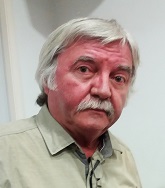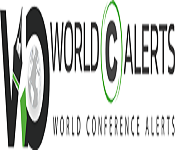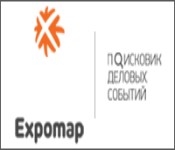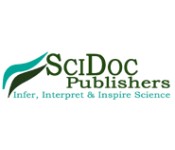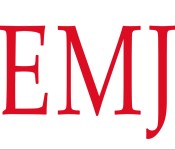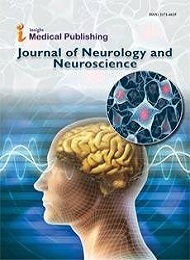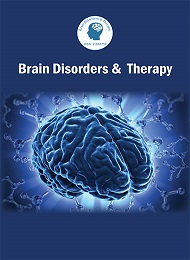Theme: “New and Emerging Target Therapies in Dementia Care and Alzheimer’s diseaseâ€
Dementia 2022
Conference Series Ltd extends its welcome to Annual Dementia Conference on March 21-22, 2022 in Amsterdam, Netherlands. Conference Series Ltd through its Open Access Initiative is committed to make genuine and reliable contributions to the scientific community.
We invite all the participants from all over the world to attend Annual Dementia Conference 2022 during March 21-22, 2022 at Amsterdam, Netherlands with the Theme: “New and Emerging Target Therapies in Dementia Care and Alzheimer’s disease” which includes prompt keynote presentations, Oral talks, Poster presentations and Exhibitions.
Dementia is defined as inadequate blood flow can damage and eventually kill cells anywhere in the body.
In Dementia, changes in intuition aptitudes here and there happen all of a sudden after strokes that piece real cerebrum veins. Vascular mind changes frequently exist together with changes connected to different sorts of dementia, including Alzheimer's sickness and dementia with Lewy bodies. Dementia side effects might be most evident when they happen not long after a noteworthy stroke incorporates disarray, bewilderment, inconvenience talking or understanding discourse and vision misfortune.
Various companies in the multi infarct dementia market are adopting several economic strategies such as collaborations, expansions and acquisitions to keep a strong position and gain advantage in the market. Some major companies in the market include Forest Laboratories, Inc., Janssen Pharmaceuticals, Inc., Novartis Pharmaceutical Corporation, Pfizer, Inc. and Eisai, Inc.
Join Dementia Conference 2022 for promoting your research article and to facilitate prestigious awards in all categories.
Participation Categories:
- Keynote Presentations
- Oral and Poster presentations
- Young Research Forums
- Exhibitions
- Workshop/Symposia
- Media Partners
- Sponsors
Why to attend??
Dementia Conference is a unique forum to bring together worldwide distinguished academics in the field of Neuroscience and Neurology, Nutrition, Researchers, Public health professionals, Scientists, Academic scientists, Industry researchers, Scholars to exchange about state of the Research and Development.
Aim of Dementia conference is stimulate new ideas for treatment that will be beneficial across the spectrum of Dementia. A Unique Opportunity for Advertisers and Sponsors at this International event.
Target Group:
Neurologists and Executives
Physicians
Neuroscientists
Specialists
Researchers
Health mind experts
Professors
Industrial Specialists
Neurosurgeons
Psychiatrist
Nutritional Researchers
Lecturers and Understudies from the scholarly world in the investigation of Dementia
Students from the scholarly community in the examination of Neurology
Neurologists and Directors
Health care professionals
Mental Health
Neurobiologist
Neurological Surgeon
Neurologist
Neuroanatomist
Track 1: Dementia
Loss of memory and other thinking abilities severe enough to interfere with daily life is referred to as dementia, which is a general term for memory, language, problem-solving, and other thinking abilities. In terms of dementia, Alzheimer's disease is the most common cause. Damage to brain cells is the cause of dementia. The brain cells are unable to communicate with each other because of this damage. A person's thinking, behavior, and feelings can be affected if brain cells cannot communicate in a normal manner.
Related Conferences: Annual Dementia Conference | Dementia Conference | Alzheimer Conference | Dementia Care Conference | Vascular Dementia Conference | Neuroscience Conference | Neurology Conference | Lewy Bodies Dementia Conference | Dementia Treatment Conference | Dementia Congress | Neuro Pharmacology Conference | Neuro Surgery Conference | Sleep Disorder Conference | CNS Disorder Conference | Neuro Toxicology Conference | Neuro Immunology Conference | Dementia Conference USA | Dementia Conference Europe | Dementia Conference Asia | Brain Disorder Conference | Dementia Global Summit
Track 2: Vascular Dementia
An ageing population with obesity or diabetes is at a higher risk of developing vascular dementia, which results in memory loss. It causes difficulty with reasoning and judgement in the early stages. At a later stage, the memory is also affected by the disease. When conditions that affect heart health are under control, they can help slow the progression of the condition. Medications to treat Alzheimer's disease may help control cognitive symptoms.
Related Conferences: Dementia Conference | Annual Dementia Conference | Dementia Global Summit | Dementia care Conference | Vascular Dementia Conference | Dementia Congress | Annual Dementia Congress | Neuroscience Conference | Neurology Conference | Neuro Pharmacology Conference | Neuro Surgery Conference | Sleep Disorder Conference | CNS Disorder Conference | Neuro Toxicology Conference | Neuro Immunology Conference | Dementia Conference USA | Dementia Conference Europe | Dementia Conference Asia | Brain Disorder Conference
Track 3: Lewy body Dementia
There are abnormal microscopic deposits in the brain that damage brain cells over time, causing Lewy body dementia. As a result of Lewy body dementia, the brain's cognitive abilities gradually decline. Hallucinations and changes in alertness and attention are common in people with Lewy body dementia (LD). Parkinson's disease can also cause rigid muscles, sluggish movements, difficulty walking and tremors.
Related Conferences: Annual Dementia Conference | Dementia Conference | Alzheimer Conference | Dementia Care Conference | Vascular Dementia Conference | Neuroscience Conference | Neurology Conference | Lewy Bodies Dementia Conference | Dementia Treatment Conference | Dementia Congress | Neuro Pharmacology Conference | Neuro Surgery Conference | Sleep Disorder Conference | CNS Disorder Conference | Neuro Toxicology Conference | Neuro Immunology Conference | Dementia Conference USA | Dementia Conference Europe | Dementia Conference Asia | Brain Disorder Conference | Dementia Global Summit
Track 4: Dementia Care Management
Computer-assisted assessment determines a personalized array of intervention modules and subsequent success monitoring are used in Dementia care management. Incorporating Dementia care management into routine care could improve the treatment and care of people with dementia and reduce caregiver burden.
Related Conferences: Dementia Conference | Annual Dementia Conference | Dementia Global Summit | Dementia care Conference | Vascular Dementia Conference | Dementia Congress | Annual Dementia Congress | Neuroscience Conference | Neurology Conference | Neuro Pharmacology Conference | Neuro Surgery Conference | Sleep Disorder Conference | CNS Disorder Conference | Neuro Toxicology Conference | Neuro Immunology Conference | Dementia Conference USA | Dementia Conference Europe | Dementia Conference Asia | Brain Disorder Conference
Track 5: Huntington's disease
It's a progressive brain disorder caused by a faulty gene, and it's a leading cause of dementia. There are changes in the central part of the brain that affect the brain's ability to move, think and feel. Arms, legs, the head, face, and upper body move uncontrollably, which is a hallmark symptom of Huntington's disease. Memory, concentration, judgement, and the ability to plan and organize are also affected by Huntington's disease.
Related Conferences: Annual Dementia Conference | Dementia Conference | Alzheimer Conference | Dementia Care Conference | Vascular Dementia Conference | Neuroscience Conference | Neurology Conference | Lewy Bodies Dementia Conference | Dementia Treatment Conference | Dementia Congress | Neuro Pharmacology Conference | Neuro Surgery Conference | Sleep Disorder Conference | CNS Disorder Conference | Neuro Toxicology Conference | Neuro Immunology Conference | Dementia Conference USA | Dementia Conference Europe | Dementia Conference Asia | Brain Disorder Conference | Dementia Global Summit
Track 6: Alzheimer's disease
As a result of Alzheimer's disease, the brain shrinks (atrophys) and brain cells die, a progressive neurologic disorder. When a person's ability to function independently is affected, Alzheimer's disease is the most common cause of dementia.
Related Conferences: Dementia Conference | Annual Dementia Conference | Dementia Global Summit | Dementia care Conference | Vascular Dementia Conference | Dementia Congress | Annual Dementia Congress | Neuroscience Conference | Neurology Conference | Neuro Pharmacology Conference | Neuro Surgery Conference | Sleep Disorder Conference | CNS Disorder Conference | Neuro Toxicology Conference | Neuro Immunology Conference | Dementia Conference USA | Dementia Conference Europe | Dementia Conference Asia | Brain Disorder Conference
Track 7: Parkinson's disease
Movement is affected by Parkinson's disease, a disorder of the nervous system that progresses with time. A slight tremor in one hand can be the first sign of the disease. In addition to causing tremors, this disorder can also cause stiffness or sluggishness of movement. Dopamine levels drop due to nerve cell damage in the brain, causing Parkinson's symptoms. Parkinson's disease often begins with a tremor in one hand, according to a new study. Movement is sluggish and there is a loss of balance. Controlling Parkinson's symptoms with medication is possible.
Related Conferences: Annual Dementia Conference | Dementia Conference | Alzheimer Conference | Dementia Care Conference | Vascular Dementia Conference | Neuroscience Conference | Neurology Conference | Lewy Bodies Dementia Conference | Dementia Treatment Conference | Dementia Congress | Neuro Pharmacology Conference | Neuro Surgery Conference | Sleep Disorder Conference | CNS Disorder Conference | Neuro Toxicology Conference | Neuro Immunology Conference | Dementia Conference USA | Dementia Conference Europe | Dementia Conference Asia | Brain Disorder Conference | Dementia Global Summit
Track 8: Semantic Dementia
Those with semantic dementia have trouble matching words with their images or meanings (semantic memory). However, patients with this disorder are still able to speak and remember daily events quite well (episodic memory). With svPPA, the average lifespan is 12 years, although this can vary from person to person.
Related Conferences: Dementia Conference | Annual Dementia Conference | Dementia Global Summit | Dementia care Conference | Vascular Dementia Conference | Dementia Congress | Annual Dementia Congress | Neuroscience Conference | Neurology Conference | Neuro Pharmacology Conference | Neuro Surgery Conference | Sleep Disorder Conference | CNS Disorder Conference | Neuro Toxicology Conference | Neuro Immunology Conference | Dementia Conference USA | Dementia Conference Europe | Dementia Conference Asia | Brain Disorder Conference
Track 9: Dementia Stages
Memory, attention, logical reasoning, and other mental abilities are all affected by Dementia. Changes that are so severe that they interfere with social or occupational functioning are considered to be "severe." Dementia usually progresses through these phases. Depending on the area of the brain affected, the symptoms may vary.
Related Conferences: Annual Dementia Conference | Dementia Conference | Alzheimer Conference | Dementia Care Conference | Vascular Dementia Conference | Neuroscience Conference | Neurology Conference | Lewy Bodies Dementia Conference | Dementia Treatment Conference | Dementia Congress | Neuro Pharmacology Conference | Neuro Surgery Conference | Sleep Disorder Conference | CNS Disorder Conference | Neuro Toxicology Conference | Neuro Immunology Conference | Dementia Conference USA | Dementia Conference Europe | Dementia Conference Asia | Brain Disorder Conference | Dementia Global Summit
Track 10: Ageing and Dementia
A decline in memory and other mental abilities is known as dementia. Up to 7 percent of adults 60 and older suffer from dementia, according to the Alzheimer's Association. Dementia can cause other symptoms in addition to memory, language and decision-making problems. There are a variety of mood changes, including irritability and depression.
Related Conferences: Dementia Conference | Annual Dementia Conference | Dementia Global Summit | Dementia care Conference | Vascular Dementia Conference | Dementia Congress | Annual Dementia Congress | Neuroscience Conference | Neurology Conference | Neuro Pharmacology Conference | Neuro Surgery Conference | Sleep Disorder Conference | CNS Disorder Conference | Neuro Toxicology Conference | Neuro Immunology Conference | Dementia Conference USA | Dementia Conference Europe | Dementia Conference Asia | Brain Disorder Conference
Track 11: Neuropharmacology
Neuropharmacology is the learning of how drugs affect cellular function in the nervous system, and the neural mechanisms through which they influence behavior. Behavioural neuropharmacology and molecular neuropharmacology are the two major branches of neuropharmacology. Drug dependence and addiction are studied in behavioural neuropharmacology.
Related Conferences: Annual Dementia Conference | Dementia Conference | Alzheimer Conference | Dementia Care Conference | Vascular Dementia Conference | Neuroscience Conference | Neurology Conference | Lewy Bodies Dementia Conference | Dementia Treatment Conference | Dementia Congress | Neuro Pharmacology Conference | Neuro Surgery Conference | Sleep Disorder Conference | CNS Disorder Conference | Neuro Toxicology Conference | Neuro Immunology Conference | Dementia Conference USA | Dementia Conference Europe | Dementia Conference Asia | Brain Disorder Conference | Dementia Global Summit
Track 12: Neuro Oncology and CNS
Brain and spinal cord neoplasms, many of which are very dangerous and life-threatening, are studied by neuro-oncologists in this field. Gliomas of the brainstem and pons, glioblastoma multiforme, and high-grade astrocytoma are among the worst of the malignant brain cancers. There are two main parts to the central nervous system (CNS), which are the brain and spinal cord. Meninges are three layers of membranes that surround the brain and spinal cord.
Related Conferences: Dementia Conference | Annual Dementia Conference | Dementia Global Summit | Dementia care Conference | Vascular Dementia Conference | Dementia Congress | Annual Dementia Congress | Neuroscience Conference | Neurology Conference | Neuro Pharmacology Conference | Neuro Surgery Conference | Sleep Disorder Conference | CNS Disorder Conference | Neuro Toxicology Conference | Neuro Immunology Conference | Dementia Conference USA | Dementia Conference Europe | Dementia Conference Asia | Brain Disorder Conference
Track 13: Novel Therapeutics
Novel therapies are therapies completely novel to veterinary medicine either because they are genuinely novel and have not been before used in the context of a medicine, or new only to the veterinary domain, though well known in terms of research, and possibly in the context of human medicine.
Related Conferences: Annual Dementia Conference | Dementia Conference | Alzheimer Conference | Dementia Care Conference | Vascular Dementia Conference | Neuroscience Conference | Neurology Conference | Lewy Bodies Dementia Conference | Dementia Treatment Conference | Dementia Congress | Neuro Pharmacology Conference | Neuro Surgery Conference | Sleep Disorder Conference | CNS Disorder Conference | Neuro Toxicology Conference | Neuro Immunology Conference | Dementia Conference USA | Dementia Conference Europe | Dementia Conference Asia | Brain Disorder Conference | Dementia Global Summit
Track 14: Dementia Rehabilitation and Therapy
In cognitive rehabilitation, people with dementia engage in or manage everyday activities, function optimally, and maintain as much independence as possible, based on a problem-solving framework. People with dementia may benefit from cognitive stimulation because it improves their thinking and memory skills.
Related Conferences: Dementia Conference | Annual Dementia Conference | Dementia Global Summit | Dementia care Conference | Vascular Dementia Conference | Dementia Congress | Annual Dementia Congress | Neuroscience Conference | Neurology Conference | Neuro Pharmacology Conference | Neuro Surgery Conference | Sleep Disorder Conference | CNS Disorder Conference | Neuro Toxicology Conference | Neuro Immunology Conference | Dementia Conference USA | Dementia Conference Europe | Dementia Conference Asia | Brain Disorder Conference
Track 15: Mild Cognitive Impairment (MCI)
Mild cognitive impairment (MCI) is a stage between normal ageing and dementia. Problems with memory, language, thinking or judgement characterize this condition. For many years, people with MCI do not develop Alzheimer's or dementia.
Related Conferences: Annual Dementia Conference | Dementia Conference | Alzheimer Conference | Dementia Care Conference | Vascular Dementia Conference | Neuroscience Conference | Neurology Conference | Lewy Bodies Dementia Conference | Dementia Treatment Conference | Dementia Congress | Neuro Pharmacology Conference | Neuro Surgery Conference | Sleep Disorder Conference | CNS Disorder Conference | Neuro Toxicology Conference | Neuro Immunology Conference | Dementia Conference USA | Dementia Conference Europe | Dementia Conference Asia | Brain Disorder Conference | Dementia Global Summit
Track 16: Frontotemporal dementia
FTDD is a rare form of dementia that affects behaviour and language. Problems with mental abilities are caused by gradual brain changes and damage. The front and sides of the brain are affected by frontotemporal dementia. If you swear, steal, are more interested in sex, or have poor personal hygiene habits, you may be showing signs of depression.
Related Conferences: Dementia Conference | Annual Dementia Conference | Dementia Global Summit | Dementia care Conference | Vascular Dementia Conference | Dementia Congress | Annual Dementia Congress | Neuroscience Conference | Neurology Conference | Neuro Pharmacology Conference | Neuro Surgery Conference | Sleep Disorder Conference | CNS Disorder Conference | Neuro Toxicology Conference | Neuro Immunology Conference | Dementia Conference USA | Dementia Conference Europe | Dementia Conference Asia | Brain Disorder Conference
Track 17: Neurodegenerative Diseases
As a result of neurodegenerative disorders, certain parts of the brain die. As a result, they are some of the most difficult diseases to treat and can have debilitating effects. Among the most common movement disorders, Parkinson's disease and Huntington's disease are among the most severe. A neurodegenerative disease is a group of chronic, debilitating conditions characterized by the progressive degeneration and death of nerve cells.
Related Conferences: Annual Dementia Conference | Dementia Conference | Alzheimer Conference | Dementia Care Conference | Vascular Dementia Conference | Neuroscience Conference | Neurology Conference | Lewy Bodies Dementia Conference | Dementia Treatment Conference | Dementia Congress | Neuro Pharmacology Conference | Neuro Surgery Conference | Sleep Disorder Conference | CNS Disorder Conference | Neuro Toxicology Conference | Neuro Immunology Conference | Dementia Conference USA | Dementia Conference Europe | Dementia Conference Asia | Brain Disorder Conference | Dementia Global Summit
Track 18: Neurological Brain diseases
According to medical definitions, neurological disorders affect the brain, nerves throughout the body, and the spinal column. The brain, spinal cord, and other nerves can be affected by abnormal structural, biochemical, or electrical changes.
Related Conferences: Dementia Conference | Annual Dementia Conference | Dementia Global Summit | Dementia care Conference | Vascular Dementia Conference | Dementia Congress | Annual Dementia Congress | Neuroscience Conference | Neurology Conference | Neuro Pharmacology Conference | Neuro Surgery Conference | Sleep Disorder Conference | CNS Disorder Conference | Neuro Toxicology Conference | Neuro Immunology Conference | Dementia Conference USA | Dementia Conference Europe | Dementia Conference Asia | Brain Disorder Conference
Track 19: Drug Development in Dementia
From bench to bedside, drug development is the process of bringing a novel drug to market. As a progressive and irreversible decline in cognition, dementia affects a patient's pre-existing level of functioning, according to its definition. Alzheimer's disease (AD) is the most common cause of the clinical syndrome of dementia. In Alzheimer's disease, drug development is based on pathophysiological theory that is constantly evolving.
Related Conferences: Annual Dementia Conference | Dementia Conference | Alzheimer Conference | Dementia Care Conference | Vascular Dementia Conference | Neuroscience Conference | Neurology Conference | Lewy Bodies Dementia Conference | Dementia Treatment Conference | Dementia Congress | Neuro Pharmacology Conference | Neuro Surgery Conference | Sleep Disorder Conference | CNS Disorder Conference | Neuro Toxicology Conference | Neuro Immunology Conference | Dementia Conference USA | Dementia Conference Europe | Dementia Conference Asia | Brain Disorder Conference | Dementia Global Summit
Track 20: Recent Advancement in Treatments of Dementia
Alzheimer's disease, frontotemporal dementia and dementia with Lewy bodies are among the diseases for which research is being conducted. As a general term, dementia describes a wide range of symptoms that affect memory, daily functioning, and communication abilities. With time, Alzheimer's disease worsens and affects memory and thinking.
Related Conferences: Dementia Conference | Annual Dementia Conference | Dementia Global Summit | Dementia care Conference | Vascular Dementia Conference | Dementia Congress | Annual Dementia Congress | Neuroscience Conference | Neurology Conference | Neuro Pharmacology Conference | Neuro Surgery Conference | Sleep Disorder Conference | CNS Disorder Conference | Neuro Toxicology Conference | Neuro Immunology Conference | Dementia Conference USA | Dementia Conference Europe | Dementia Conference Asia | Brain Disorder Conference
Track 21: Clinical Trials & Case Reports in Dementia
Medical, surgical, or behavioural interventions are evaluated through clinical trials. Neurotransmitter modification, anti-neuroinflammation and neuroprotection interventions, cognitive enhancement, and behavioural psychological symptoms are among the possible interventions being tested in ongoing clinical trials.
Related Conferences: Annual Dementia Conference | Dementia Conference | Alzheimer Conference | Dementia Care Conference | Vascular Dementia Conference | Neuroscience Conference | Neurology Conference | Lewy Bodies Dementia Conference | Dementia Treatment Conference | Dementia Congress | Neuro Pharmacology Conference | Neuro Surgery Conference | Sleep Disorder Conference | CNS Disorder Conference | Neuro Toxicology Conference | Neuro Immunology Conference | Dementia Conference USA | Dementia Conference Europe | Dementia Conference Asia | Brain Disorder Conference | Dementia Global Summit
Track 22: Bioinformatics Approach for Dementia
Massive amounts of data can be collected with the spread of microarrays and next-generation sequencing technologies. To extract the relevant information from these collections of data, data-mining techniques for "big data" are required. Through bioinformatics studies, these techniques are applied to biological data. Bioinformatics approaches applied to omics data have revealed the complex pathology of Alzheimer's disease (AD).
Related Conferences: Dementia Conference | Annual Dementia Conference | Dementia Global Summit | Dementia care Conference | Vascular Dementia Conference | Dementia Congress | Annual Dementia Congress | Neuroscience Conference | Neurology Conference | Neuro Pharmacology Conference | Neuro Surgery Conference | Sleep Disorder Conference | CNS Disorder Conference | Neuro Toxicology Conference | Neuro Immunology Conference | Dementia Conference USA | Dementia Conference Europe | Dementia Conference Asia | Brain Disorder Conference
Track 23: Brain Injury and Behavioral Neuroscience
Traumatic brain injury is a trouble of various causes, pathologies, and extremely varied and often multifaceted clinical presentations. Because of its preference for brain systems underlying cognitive and multifaceted behavioural operations, it may cause chronic and severe psychiatric illness that needs expert management. Traumatic brain injury is a typical for other neuropsychiatric disorders and may serve as an incubator of new thoughts for neurodegenerative disease.
Related Conferences: Annual Dementia Conference | Dementia Conference | Alzheimer Conference | Dementia Care Conference | Vascular Dementia Conference | Neuroscience Conference | Neurology Conference | Lewy Bodies Dementia Conference | Dementia Treatment Conference | Dementia Congress | Neuro Pharmacology Conference | Neuro Surgery Conference | Sleep Disorder Conference | CNS Disorder Conference | Neuro Toxicology Conference | Neuro Immunology Conference | Dementia Conference USA | Dementia Conference Europe | Dementia Conference Asia | Brain Disorder Conference | Dementia Global Summit
Track 24: Neuroscience and Artificial Intelligence
The advances in artificial intelligence systems can contribute to advancing neuroscience and revealing brain secrets. This provides for better models for the simulation of the human brain by neuroscientists and researchers. Neural networks act as "virtual brains" that capture our brain's representation. The link between artificial intelligence and neuroscience can lead to an understanding of the brain mechanisms that generate human awareness.
Related Conferences: Dementia Conference | Annual Dementia Conference | Dementia Global Summit | Dementia care Conference | Vascular Dementia Conference | Dementia Congress | Annual Dementia Congress | Neuroscience Conference | Neurology Conference | Neuro Pharmacology Conference | Neuro Surgery Conference | Sleep Disorder Conference | CNS Disorder Conference | Neuro Toxicology Conference | Neuro Immunology Conference | Dementia Conference USA | Dementia Conference Europe | Dementia Conference Asia | Brain Disorder Conference
Track 25: Brain Stimulation and Imaging
Therapies for brain stimulation use directly with electricity to activate or inhibit the brain. Strom can be directly determined by electrodes implanted in the brain or by electrodes placed non-invasively on the scalp. Electricity can also be induced through the use of magnetic fields on the head. Brain imagery and brain stimulation have both enhanced our understanding of normal functional mechanisms and changes related to brain and mental illness. Brain encouragement has also shown promise to reduce brain and mental illness symptoms and allows hypotheses derived from data on brain imaging to be tested.
Related Conferences: Annual Dementia Conference | Dementia Conference | Alzheimer Conference | Dementia Care Conference | Vascular Dementia Conference | Neuroscience Conference | Neurology Conference | Lewy Bodies Dementia Conference | Dementia Treatment Conference | Dementia Congress | Neuro Pharmacology Conference | Neuro Surgery Conference | Sleep Disorder Conference | CNS Disorder Conference | Neuro Toxicology Conference | Neuro Immunology Conference | Dementia Conference USA | Dementia Conference Europe | Dementia Conference Asia | Brain Disorder Conference | Dementia Global Summit
Track 26: Therapeutic Targets and Mechanisms for Treatment
Alzheimer's illness could be a progressive neurodegenerative disease that's characterized histopathologically by the presence of plaques, principally composed of Abeta amyloid and the tangles, principally composed of hyper phosphorylated alphabetic character. To date, there's no treatment which will reverse the illness, and everyone this medical specialty is directed to address the symptoms of the illness. Here we tend to describe the efforts dedicated to attack the plaques and, in additional detail, the method of neurofibrillary degeneration, connected to the presence of the hyper phosphorylated tubule associated super molecule alphabetic character. We’ve known the various purported targets for medical specialty and the current data on them.
Related Conferences: Dementia Conference | Annual Dementia Conference | Dementia Global Summit | Dementia care Conference | Vascular Dementia Conference | Dementia Congress | Annual Dementia Congress | Neuroscience Conference | Neurology Conference | Neuro Pharmacology Conference | Neuro Surgery Conference | Sleep Disorder Conference | CNS Disorder Conference | Neuro Toxicology Conference | Neuro Immunology Conference | Dementia Conference USA | Dementia Conference Europe | Dementia Conference Asia | Brain Disorder Conference
DEMENTIA DRUGS MARKET - GROWTH, TRENDS, COVID-19 IMPACT, AND FORECASTS (2021 - 2026)
The Dementia Drugs Market is segmented by Indications (Lewy Body Dementia, Parkinson’s Disease Dementia, Alzheimer’s Disease, Vascular Dementia, and Other Indications), Drug Class (MAO Inhibitors, Glutamate Inhibitors, and Cholinesterase Inhibitors), and Geography (North America, Europe, Asia-Pacific, Middle East and Africa, and South America). The report offers the value (in USD million) for the above segments.
Global Dementia - Alzheimer Disease Market, By Drug Class (Cholinergic/Cholinesterase (ChE) Inhibitors, Memantine, Combined Drug), Distribution Channel (Hospital Pharmacy, Retail Pharmacy, Online Sales), Country (U.S., Canada, Mexico, Peru, Brazil, Argentina, Rest of South America, Germany, Italy, U.K., France, Spain, Netherlands, Belgium, Switzerland, Turkey, Russia, Hungary, Lithuania, Austria, Ireland, Norway, Poland, Rest of Europe, Japan, China, India, South Korea, Australia, Singapore, Malaysia, Thailand, Indonesia, Philippines, Vietnam, Rest of Asia Pacific, South Africa, Saudi Arabia, U.A.E, Kuwait, Israel, Egypt, Rest of Middle East and Africa), Industry Trends and Forecast to 2028.
Market Analysis and Insights of Dementia - Alzheimer Disease Market
The Dementia - Alzheimer disease market is expected to gain market growth in the forecast period of 2021 to 2028. Data Bridge Market Research analyses the market to account to grow at a CAGR of 10% in the above mentioned forecast period.
Dementia is a common term for a decline in mental ability harsh enough to obstruct with daily life. Alzheimer's is the most common cause of dementia. Dementia defines various numbers of symptoms which includes memory loss and problems with thinking, problem-solving or language.
The rise in prevalence of Alzheimer’s across the globe is amongst the important factor expected to intensify the growth and demand of dementia - Alzheimer disease market. In addition, the rise in geriatric population and increase in awareness regarding neurodegenerative diseases in developing countries are also expected contribute to the growth in the global market over the forecast period of 2021 to 2028. Also the strong pipeline of innovative treatment options and huge healthcare spending is also likely to enhance the growth of the market. Furthermore, the high demand for personalized drugs and affordable diagnostics tests are also one of the significant factors expected to fuel the growth of the dementia - Alzheimer disease market.
The increase in research and development activities in disease modifying drugs and rapid surge in investment by major key players in the clinical studies of advanced treatment options are anticipated to offer significant growth opportunities for the market in the forecast period of 2021 to 2028.
However, the high cost of advanced treatments and various side-effects associated with certain treatments are expected to curb the growth of the dementia - Alzheimer disease market, whereas the high cost of prospective drugs can challenge the growth of the dementia - Alzheimer disease market.
This dementia - Alzheimer disease market report provides details of new recent developments, trade regulations, import export analysis, production analysis, value chain optimization, market share, impact of domestic and localized market players, analyses opportunities in terms of emerging revenue pockets, changes in market regulations, strategic market growth analysis, market size, category market growths, application niches and dominance, product approvals, product launches, geographic expansions, technological innovations in the market. To gain more info on the Dementia - Alzheimer disease market contact Data Bridge Market Research for an Analyst Brief, our team will help you take an informed market decision to achieve market growth.
Global Dementia - Alzheimer Disease Market Scope and Market Size
The Dementia - Alzheimer disease market is segmented on the basis of drug class and distribution channel. The growth amongst these segments will help you analyze meager growth segments in the industries, and provide the users with valuable market overview and market insights to help them in making strategic decisions for identification of core market applications.
On the basis of drug class, the dementia - Alzheimer disease market is segmented intocholinergic/cholinesterase (ChE) inhibitors, memantine and combined drug. Cholinergic/cholinesterase (ChE) inhibitors have further been segmented into donepezil, galantamine and rivastigmine.
The distribution channel segment of dementia - Alzheimer disease market is segmented into hospital pharmacy, retail pharmacy and online sales.
Dementia - Alzheimer Disease Market Country Level Analysis
The Dementia - Alzheimer disease market is analyzed and market size insights and trends are provided by country, drug class and distribution channel as referenced above.
The countries covered in the dementia - Alzheimer disease market report are U.S., Canada and Mexico in North America, Peru, Brazil, Argentina and Rest of South America as part of South America, Germany, Italy, U.K., France, Spain, Netherlands, Belgium, Switzerland, Turkey, Russia, Hungary, Lithuania, Austria, Ireland, Norway, Poland, Rest of Europe in Europe, Japan, China, India, South Korea, Australia, Singapore, Malaysia, Thailand, Indonesia, Philippines, Vietnam, Rest of Asia-Pacific (APAC) in Asia-Pacific (APAC), South Africa, Saudi Arabia, U.A.E, Kuwait, Israel, Egypt, Rest of Middle East and Africa (MEA) as a part of Middle East and Africa (MEA).
North America region leads the dementia - Alzheimer disease marketowing to the rise in awareness regarding Alzheimer’s disease in the U.S. and increase in prevalence of Alzheimer disease. Asia-Pacific is expected to expand at a significant growth rate over the forecast period of 2021 to 2028 because of theimprovement in health care infrastructure and rise in awareness regarding Alzheimer’s in countries such as India and China.
The country section of the dementia - Alzheimer disease market report also provides individual market impacting factors and changes in regulation in the market domestically that impacts the current and future trends of the market. Data points such as consumption volumes, production sites and volumes, import export analysis, price trend analysis, cost of raw materials, down-stream and upstream value chain analysis are some of the major pointers used to forecast the market scenario for individual countries. Also, presence and availability of global brands and their challenges faced due to large or scarce competition from local and domestic brands, impact of domestic tariffs and trade routes are considered while providing forecast analysis of the country data.
Competitive Landscape and Dementia - Alzheimer Disease Market Share Analysis
The Dementia - Alzheimer disease market competitive landscape provides details by competitor. Details included are company overview, company financials, revenue generated, market potential, investment in research and development, new market initiatives, global presence, production sites and facilities, production capacities, company strengths and weaknesses, product launch, product width and breadth, application dominance. The above data points provided are only related to the companies’ focus related to dementia - Alzheimer disease market.
The major players covered in the dementia - Alzheimer disease market report are Eisai Co. Ltd., Pfizer, Inc., Sanofi, Teva Pharmaceuticals Industries Ltd., Novartis AG, Allergan, Merz Pharma, Johnson & Johnson Services, Inc., F. Hoffmann-La Roche Ltd, Bristol-Myers Squibb Company, AbbVie Inc., Eli Lilly and Company, Takeda Pharmaceutical Company Limited, Bayer AG, Biogen, AstraZeneca, VTV Therapeutics, H. Lundbeck A/S, TauRx Pharmaceuticals Ltd, and DAIICHI SANKYO COMPANY, LIMITED, among other domestic and global players. Market share data is available for Global, North America, Europe, Asia-Pacific (APAC), Middle East and Africa (MEA) and South America separately. DBMR analysts understand competitive strengths and provide competitive analysis for each competitor separately.
Customization Available : Global Dementia - Alzheimer Disease Market
Data Bridge Market Research is a leader in advanced formative research. We take pride in servicing our existing and new customers with data and analysis that match and suits their goal. The report can be customized to include price trend analysis of target brands understanding the market for additional countries (ask for the list of countries), clinical trial results data, literature review, refurbished market and product base analysis. Market analysis of target competitors can be analyzed from technology-based analysis to market portfolio strategies. We can add as many competitors that you require data about in the format and data style you are looking for. Our team of analysts can also provide you data in crude raw excel files pivot tables (Factbook) or can assist you in creating presentations from the data sets available in the report.
Advantages of Participating at Dementia Conference
•The Speaker's advantages and abstract pages in Google will be made visible worldwide on your profile under your name.
•There are over three hundred thousand users and more over 50,000 views of our Abstract Library, bringing researchers and speeches into our Conference, on our comprehensive online advertising.
•Meet hundreds of pioneers in Dementia Conference who share thoughts.
•All Conference participants would have another reason to participate in one-to-one meetings with distinguished speakers and renowned keynote speakers.
•A rare opportunity to hear from the world's most influential Dementia researcher at our keynote sessions.
•Dementia Conference 2022 schedule, you will acquire experience and expertise in strategic gift preparation that is worth its weight golf, forming an impressive array of recognized professionals.
•Best Poster Award nominations
•Award for Outstanding Young Researcher
•Group Registration Advantages
Benefits of Participation for Speaker
•Global awareness of the researchers' profile
•Professional growth
•Explore the latest state of the art analysis
•Make long-term social and networking bonds •
•An ability to advertise one page in the distribution of abstract books and flyers that ultimately gets 1 million views and adds great value to your research profile.
•Learn a transition beyond your area of interest to learn more about new subjects and studies away from your core subject of Dementia Conference.
•We have distinctive networking, learning and enjoyable integration into a single package.
Benefits of Participation for Delegate
•Professional Development-Improve understanding and knowledge.
•Attendance at Conference supports rejuvenates and energies delegates.
•Your involvement in our Conference will help with a new methodology and ideology that can be used to broaden the outcomes of businesses or industries.
•Opportunities for Dementia researchers and experts in the same field to meet and exchange new ideas through Conference.
Benefit of Participation for Sponsor
•Exposure to the international environment would increase the possibility of new companies.
•Opportunity to demonstrate your company's latest technologies, new products, or service your business to a wide range of international participants.
•Increase business by our Conference participants through lead generation.
•It takes a lot of time, effort and drive to create a successful company, so it's always nice to have a network of colleagues and associates to draw energy from individuals who share a common drive and objective.
•Dementia Conference will provide opportunities for more attention and contemplation that could help you move your company to the next stage.
•Benchmarking main organization plans and moving it forward.
•Get feedback from trustworthy people at our webinar to your company questions and challenges.
•On our Conference banner, website and other proceedings, branding and marketing content, the advertising logo of your company.
Benefit of Association for Collaborators
•Nobody has these massive neurology visitors worldwide, this is the best forum for society to highlight.
•Creating long-lasting peer relationships.
•In our Dementia Conference banner, website and other proceedings, branding and marketing material, promotional content and your Organization logo will increase your number of subscribers/members by 40%.
•Our event will have a great impact on your organization if we present your company's listings on the Global Business Forum.
•Your representatives can network to update their knowledge and understanding of your organization and services with key Conference delegates.
•Dementia advertising materials such as posters, brochures, pamphlets, services that will be circulated to hospitals, universities, society and researchers will be integrated with information.
Conference Highlights
- Dementia
- Vascular Dementia
- Lewy body Dementia
- Dementia Care Management
- Huntingtons disease
- Alzheimers disease
- Parkinson disease
- Semantic Dementia
- Dementia Stages
- Ageing and Dementia
- Neuropharmacology
- Neuro Oncology and CNS
- Novel Therapeutics
- Dementia Rehabilitation and Therapy
- Mild Cognitive Impairment (MCI)
- Frontotemporal dementia
- Neurodegenerative Diseases
- Neurological Brain diseases
- Drug Development in Dementia
- Recent Advancement in Treatments of Dementia
- Clinical Trials & Case Reports in Dementia
- Bioinformatics Approach for Dementia
- Brain Injury and Behavioral Neuroscience
- Neuroscience and Artificial Intelligence
- Brain Stimulation and Imaging
- Therapeutic Targets and Mechanisms for Treatment
To share your views and research, please click here to register for the Conference.
To Collaborate Scientific Professionals around the World
| Conference Date | March 21-22, 2022 | ||
| Sponsors & Exhibitors |
|
||
| Speaker Opportunity Closed | |||
| Poster Opportunity Closed | Click Here to View | ||
Useful Links
Special Issues
All accepted abstracts will be published in respective Our International Journals.
- Journal of Neurological Disorders
- Journal of Alzheimers Disease & Parkinsonism
- Brain Disorders & Therapy
Abstracts will be provided with Digital Object Identifier by








